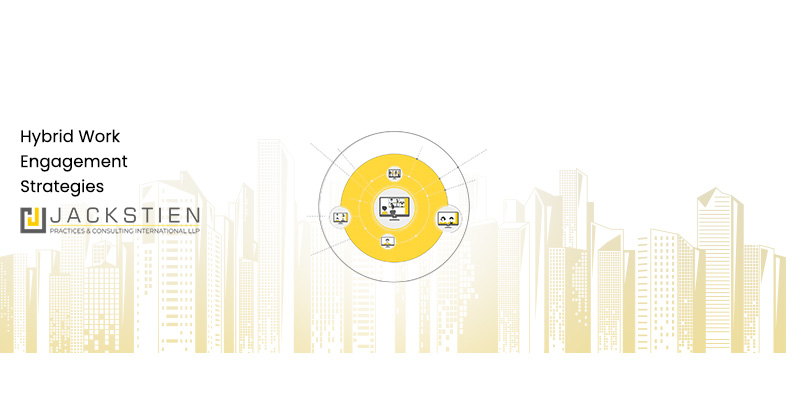Allowing Remote Work is a favour – this and other myths busted
Myths cause anxiety and paralysis. We must often unlearn so as to dispel anxiety. We start unlearning by dispelling some underlying myths of Remote Work.
Link to article – https://www.financialexpress.com/jobs/remote-working-is-the-same-as-work-from-home-this-and-other-myths-explained/2331355/
The year 2020 has changed the course of modern history but one of its primary outcomes. i.e., the broad adoption of remote work is being held back to some extent by anxiety about how the transition will work out long term. We must learn to identify these specific causes of anxiety, but to learn, we must often start with unlearning. To that end, we dispel some underlying myths of Remote Work.
Myth – Providing employees hardware and a good connection is enough…
Hundreds of typical organizational processes were designed for ‘in-office, cross-desk’ scenarios. Existing transitions simply force-fit these to a remote environment. Hardware does little to smoothen the frustrations this causes and it often feels like having a great car with no road to drive on. A good transition redesigns processes to thrive cohesively and work better in a remote environment.
Myth – Employers are doing a favour to employees…
Businesses save costs, gain multiple profitability boosts, flexibility and speed even as employees use their own resources (from power to hardware to facilities to connectivity to workspace). Employers are not doing a favour.
Myth – Employees are doing a favour to employers…
Employees gain personal time, reduced effort, improved health and quality of life. Disposable incomes improve and health management costs reduce. Employees are not doing a favour.
Employers and employees are simply negotiating a new set of rights and obligations that are mutually beneficial to both parties. No favours involved.
Myth – Remote transitions can be managed internally.
A well-designed remote work transition cuts across finance, statutory law, technology, risk management, process reengineering and automation, people management, readaptation training, law, real estate, space design, labour law, professional licensing, international work visa requirements
Hiring multiple independent professionals may not be ideal because (1) it is costly, (2) they are unlikely to have relevant expertise and (3) they unlikely to be able to work cohesively or see how each piece of the puzzle impacts the other (4) by the time the team is in place, millions have already been lost.
Managing internally is not only risky but likely to prove far more expensive. Businesses should consider hiring a domain expert in remote work to assist in this critical transition.
Myth – Remote Work is the same as Work from Home
‘Remote Work’ is an infrastructure that a company invests. ‘Working from Home’ is how most employees have leveraged that infrastructure during the pandemic. Remote Work is a much larger concept. When set up correctly, it supports low-cost and flexible presence across multiple cities, states or countries based on where the right market or customers or even employees are.
Myth – Existing remote work strategy of will continue to work for the future…
The remote work strategy adopted by most organizations in the pandemic was designed around one central aspect – survival.
This aspect was supported in large part by hundreds of dispensations and accommodations from regulators, customers, employees, auditors, statutory authorities, creditors, courts, shareholders and even other businesses. These dispensations will stop. The bar to continue operating in the post-pandemic world will be much higher and existing remote work strategies may not be adequate.
Myth – Some businesses just cannot function remotely…
Some elements of each business are ‘portable’, others aren’t. A factory floor or assembly line cannot be remote but procurement, product design, sales, finance, payroll and customer service teams certainly can. In fact, attempting to co-locate these latter departments with a factory facility may result in the worst of both worlds.
Myth – The main benefit of transition to Remote Work is flexibility for employees …
In addition to immediate profitability improvements, companies get a longer-term profitability boost from increased adaptability, flexibility and ‘improved time to market’.
A business’ strength lies in its people’s talent. When a business is able to source talent from anywhere instead of being stuck to the surrounding 30 odd kilometres, it’s a win-win. A good remote work program must be designed to be state-agnostic to maximize benefits.
Myth – Data security can be managed remotely the same way as earlier…
Data of the business and its customer typically lies on thousands of pieces of hardware. Physical offices provide much security here which will be otherwise absent in a remote environment. Further, a whole class of cyber criminals target this data maliciously. Eventually, governments will also have no choice but to impose fearsome penalties, a trend already quite prevalent. A well-designed transition program formulates security policies and practices appropriate for Remote Work.
We hope this helps dispel some myths that prevent adaptation to Remote Work. With the inevitability and ubiquity of remote work, businesses will need to transition professional and expertly because the alternatives are
(1) loss of market and cost competitiveness
(2) handing talent poaching power to the competition on a platter
(3) being the target of shareholder ire.


